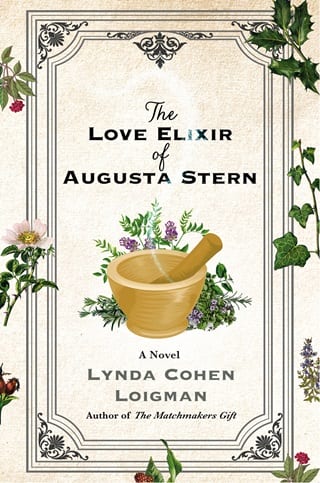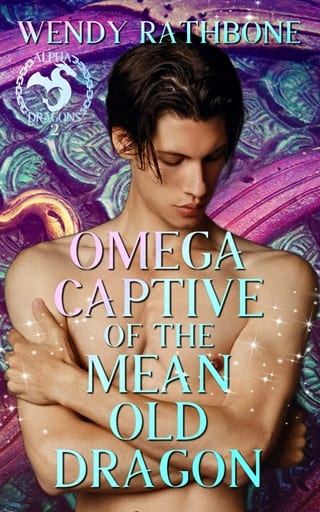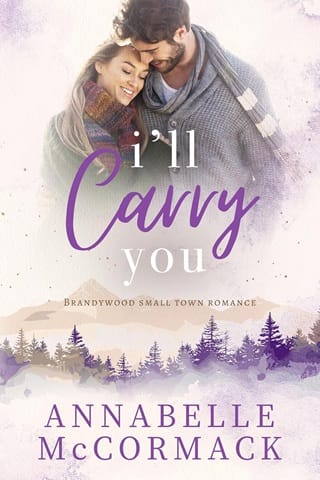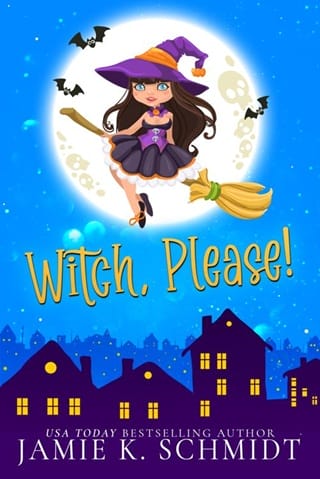Chapter Forty-Six
FORTY-SIX
OCTOBER 1927
Augusta spent her twentieth birthday taking a toxicology exam. Bess and George came for dinner with the baby, but the roast Augusta made was barely edible, and the cake Bess had baked wasn’t much better. In the year since Esther passed away, Augusta and her father had gone back to sandwiches for most of their meals. Dinners had become forgettable again, and the layer of dust on the mantel grew thicker every day. Gone were the days of Esther’s brisket, Esther’s kugels, Esther’s apple cake. Augusta missed the kugels and cakes, but she did not miss the chicken soup—she did not even miss Esther’s famous kreplach.
At the end of dinner, Solomon Stern presented Augusta with a gift—a white cotton coat similar to his own. “I thought you might wear it at the store,” he said. “I know you have two more years until you graduate, but I think it will make you look more official.” The next day, he welcomed her back to his prescription room. “There’s a lot here to keep you busy,” he said. “The work will help you the way it’s always helped me.”
After that, he let her listen in on all his consultations. If a customer objected, he explained that Augusta was getting college credit for the time she spent working at the store.
Most of the customers were accepting, but a few of them were less than kind. One day, after she stepped out of the prescription room with a box of pills she’d compounded, the customer who’d ordered them—Murray Fishman—told Augusta’s father to make them again.
“I assure you that your prescription was simple enough for any pharmacy student to make,” said Mr. Stern.
“It’s not because she’s a student,” said Murray. “I won’t trust any girl with my medication. Women are supposed to be wives and mothers. They aren’t supposed to be pharmacists!”
Solomon Stern’s face turned red with anger. “Listen here, Murray, you can’t talk that way. Not in my store, at least.”
“What do you mean, I can’t talk that way? Girls shouldn’t be messing around with people’s health! Augusta may be your daughter, Sol, but you can’t honestly tell me she can do the job as well as a man.”
“Not only can she do the job as well as any man, I guarantee you she can do it better. Augusta’s not even done with school, and she already knows as much as I do. If you don’t like her making up your pills, you can damn well get them somewhere else!”
Murray Fishman left his box of pills on the counter. They could hear him grumbling as he left the store. “I’ve been coming here for twenty-five years, but never again—do you hear me, Sol?”
Once Mr. Fishman was finally gone, Augusta’s father tried to reassure her. “Don’t pay attention to him, understand? Murray Fishman is a buffoon. You’re going to be a terrific pharmacist. You love the work, and that’s all that matters.”
Augusta tried to put the incident out of her mind, but it wasn’t easy to forget. She was grateful that her father had stood up for her, but she wasn’t sure she agreed with him. Was loving her work really all that mattered? What about loving another person? Murray Fishman’s rant made her think of the story her aunt Esther had told her about the man she’d been in love with. He told me that he loved me deeply, but he didn’t want to marry me. He was adamant that he would never marry a woman with a talent that rivaled his own.
Was that why Irving hadn’t wanted to marry her? Because she’d wanted a career? She’d always thought Irving was so supportive of her ambition, so admiring of the work she wanted to do. But what if she had been wrong? What if all men were like Murray Fishman or Aunt Esther’s village rival? What if romantic love was as elusive and as far-off as the medicine that might have saved her mother?
What if Augusta didn’t find it until it was too late?
 Fullepub
Fullepub 



